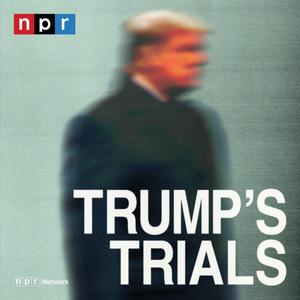
Trump's Trials
NPR
Reporting and analysis on the inquiries, trials, and criminal probes facing former President Donald Trump. From the Jan. 6 insurrection and Georgia election interference, to the ongoing question of classified documents - and beyond - host Scott Detrow, political editor Domenico Montanaro and legal experts dive deep every week to explore the news inside the courtrooms and the stakes for American democracy.Support NPR's reporting by subscribing to Trump's Trials+ and unlock sponsor-free listening. Learn more at plus.npr.org/trumpstrials
- 22 minutes 19 secondsWeek one of testimony in hush money trial, plus Supreme Court weighs immunityThis week on Trump's Trials, host Scott Detrow and Domenico Montanaro are joined by law professor Kim Wehle.
This was the first week of witness testimony in former President Donald Trump's New York hush money trial. The prosecution used their witnesses to establish Trump's knowledge and involvement in hush money payments for his alleged electoral benefit. Trump's defense team cross-examined witnesses countering that framing with the idea that this is politics as usual.
Meanwhile, at the Supreme Court, justices heard oral arguments over whether Trump is immune from criminal prosecution. Although the justices seemed skeptical of granting Trump absolute immunity, it appeared the majority of the conservatives justices seemed opened to granting some sort of immunity for presidents.
Topics include:
- Week one of testimony in hush money trial
- David Pecker testimony
- Supreme court and immunity
Follow the show on Apple Podcasts or Spotify for new episodes each Saturday.
Sign up for sponsor-free episodes and support NPR's political journalism at plus.npr.org/trumpstrials.
Email the show at [email protected].
Learn more about sponsor message choices: podcastchoices.com/adchoices
NPR Privacy Policy27 April 2024, 8:05 pm - 9 minutes 58 secondsWitness cross-examined in hush money trial, plus new indictments in ArizonaFor this episode of Trump's Trials host Scott Detrow speaks with NPR's Andrea Bernstein about the latest in the New York hush money trial. Later, election law professor Edward Foley explains the fake elector indictments out of Arizona.
In a New York courtroom, former National Enquirer publisher David Pecker took the stand for his third day of testimony. In his testimony Pecker said Trump had intimate knowledge of hush money payments from the very beginning. Pecker was then questioned by Trump's defense team, who tried to poke holes in his story.
In Arizona, 18 people have been indicted for their alleged efforts to overturn the state's 2020 election. They include some of former President Donald Trump's closet allies — former Chief of Staff Mark Meadows and his personal attorney Rudy Giuliani. Trump himself was listed as an unindicted co-conspirator. Arizona becomes the fourth state to criminally charge people related to the fake electors scheme.
Topics include:
- Hush money trial testimony
- Cross examination begins
- Fake electors scheme
Follow the show on Apple Podcasts or Spotify for new episodes each Saturday.
Sign up for sponsor-free episodes and support NPR's political journalism at plus.npr.org/trumpstrials.
Email the show at [email protected].
Learn more about sponsor message choices: podcastchoices.com/adchoices
NPR Privacy Policy25 April 2024, 10:35 pm - 18 minutes 48 secondsSupreme Court likely to deny blanket immunity but could limit scope of prosecutionFor this episode of Trump's Trials, NPR's Michel Martin speaks to Chief Legal Affairs Correspondent Nina Totenberg, Washington Desk Senior Editor and Correspondent Ron Elving, National Justice Correspondent Carrie Johnson and former White House Counsel Neil Eggleston.
On Thursday, the Supreme Court heard oral arguments over whether former President Donald Trump is immune from criminal prosecution. A majority of the justices appeared skeptical of blanket immunity. But some of the conservative justices hinted at the need for some immunity for certain actions taken while in office. The speed at which the court releases an opinion could determine whether the federal election interference case goes to trial before the November election.
Topics include:
- Justices' questions
- Scope of immunity
- Private vs official acts
- Impact on federal election interference case
Follow the show on Apple Podcasts or Spotify for new episodes each Saturday.
Sign up for sponsor-free episodes and support NPR's political journalism at plus.npr.org/trumpstrials.
Email the show at [email protected].
Learn more about sponsor message choices: podcastchoices.com/adchoices
NPR Privacy Policy25 April 2024, 9:06 pm - 10 minutes 59 secondsSupreme Court to hear oral arguments on presidential immunityFor this episode of Trump's Trials host Scott Detrow speaks with NPR Justice Correspondent Carrie Johnson.
On Thursday the Supreme Court will hear oral arguments on whether former President Donald Trump is immune from criminal prosecution.
Trump is charged with four counts related to alleged efforts to overturn the 2020 election. But he is claiming since he was president at the time he cannot face prosecution. If the Supreme Court sides with Trump, the federal election interference case is dead. If they side against him, the case moves forward, but the likelihood of it going to trial before the November election is slim.
Topics include:
- Immunity arguments
- Why did the Supreme Court take this case
- Potential trial timeline
Follow the show on Apple Podcasts or Spotify for new episodes each Saturday.
Sign up for sponsor-free episodes and support NPR's political journalism at plus.npr.org/trumpstrials.
Email the show at [email protected].
Learn more about sponsor message choices: podcastchoices.com/adchoices
NPR Privacy Policy24 April 2024, 10:02 pm - 5 minutes 22 secondsWitness describes 'catch and kill' scheme to help Trump's 2016 campaignFor this episode of Trump's Trials, All Things Considered host Mary Louise Kelly speaks with political reporter Ximena Bustillo.
David Pecker, former publisher for the National Enquirer, took the stand for a second day of testimony. Pecker explained that starting in 2015 he, Michael Cohen and Donald Trump had a deal that involved the National Enquirer buying negative stories about Trump and never publishing them – an arrangement also known as 'catch and kill.' Pecker said this was done to help Trump with his 2016 campaign. In addition, he described planting negative stories about Trump's 2016 rivals, such as the Clintons, then presidential candidate Ted Cruz and other Republican front runners.
The prosecution also argued that Trump violated the gag order placed on him at least 11 times in recent weeks. They cited posts on Truth Social and comments Trump made outside the courtroom about potential witness Michael Cohen and the jury. The judge has yet to make a ruling.
Topics include:
- Gag order
- Catch and kill deal
- What's next
Follow the show on Apple Podcasts or Spotify for new episodes each Saturday.
Sign up for sponsor-free episodes and support NPR's political journalism at plus.npr.org/trumpstrials.
Email the show at [email protected].
Learn more about sponsor message choices: podcastchoices.com/adchoices
NPR Privacy Policy23 April 2024, 10:09 pm - 10 minutes 10 secondsProsecutors argue "election fraud, pure and simple" in Trump hush money caseFor this episode of Trump's Trials, we hand the mic over to Consider This.
Host Juana Summers speaks with defense lawyer Daniel Horwitz.
As the first criminal trial for a former U.S. president got under way in New York, Donald Trump looked on as prosecution and defense teams presented their opening statements to the jury.
The former president is charged with 34 counts of falsifying business records, a felony in New York if done to cover up another crime.
The prosecution argued hush money payments made by former Trump fixer Michael Cohen to adult film star Stormy Daniels were to buy her silence about an alleged affair with Trump. And were made at the former president's direction with the intention of influencing the 2016 election.
The defense countered it was not illegal to affect the outcome of an election and that Cohen had handled the specifics of the hush money payments.
Topics include:
- Why the prosecution is arguing election fraud
- The role Michael Cohen's credibility as a witness will play
- What to look out for as the trial continues
Follow the show on Apple Podcasts or Spotify for new episodes each Saturday.
Sign up for sponsor-free episodes and support NPR's political journalism at plus.npr.org/trumpstrials.
Email the show at [email protected].
Learn more about sponsor message choices: podcastchoices.com/adchoices
NPR Privacy Policy22 April 2024, 10:09 pm - 21 minutes 5 secondsHere's what you need to know about the first week of Trump's hush money trialFor this episode of Trump's Trials, NPR senior political editor and correspondent Domenico Montanaro speaks with NPR political reporter Ximena Bustillo and University of Baltimore law professor Kim Wehle.
The first week of former President Donald Trump's hush money trial is in the books and a jury has now been seated.
Each potential juror had to answer dozens of questions and prove they could remain fair and impartial when weighing the fate of the former president, who watched the selection process from his seat in the courtroom.
Now seated, the jury will hear opening arguments in the trial beginning on Monday.
Topics include:
- What we know and can safely say about the jurors selected
- Safety concerns and security measures for jurors' protection
- Predictions for each side's case in Monday's opening arguments
Follow the show on Apple Podcasts or Spotify for new episodes each Saturday.
Sign up for sponsor-free episodes and support NPR's political journalism at plus.npr.org/trumpstrials.
Email the show at [email protected].
Learn more about sponsor message choices: podcastchoices.com/adchoices
NPR Privacy Policy20 April 2024, 5:02 pm - 7 minutes 19 secondsWith a jury seated, safety is now a top concern in hush money trialFor this episode of Trump's Trials, All Things Considered host Ailsa Chang speaks with NPR political reporter Ximena Bustillo and domestic extremism correspondent Odette Yousef.
Twelve jurors and six alternates have been selected in former President Donald Trump's hush money trial.
The jury is comprised of seven men and five women, all of whom will remain anonymous for security reasons. On Thursday one juror who had been seated for the trial voiced concern that identifying information about her had been in the media. She was dismissed from duty. That brought to light a very real concern — keeping jurors safe and protecting their identities.
Topics include:
- Jury selection process
- Juror privacy
- Security measures
Follow the show on Apple Podcasts or Spotify for new episodes each Saturday.
Sign up for sponsor-free episodes and support NPR's political journalism at plus.npr.org/trumpstrials.
Email the show at [email protected].
Learn more about sponsor message choices: podcastchoices.com/adchoices
NPR Privacy Policy19 April 2024, 10:48 pm - 4 minutes 44 seconds12 jurors have been seated in Trump's hush money trialFor this episode of Trump's Trials, All Things Considered host Mary Louise Kelly speaks with NPR political reporter Ximena Bustillo.
After just three days of jury selection, 12 New Yorkers have been seated in former President Donald Trump's hush money trial.
Trump is charged with 34 felony counts for allegedly falsifying business records to conceal hush money payments to adult film star Stormy Daniels.
The 12 are made up of seven men and five women, all of whom said they could be fair and impartial to Trump. Judge Juan Merchan hopes to select five alternates on Friday. Opening statements could begin as early as Monday.
Topics include:
- Jury selection process
- Trump in the courtroom
Follow the show on Apple Podcasts or Spotify for new episodes each Saturday.
Sign up for sponsor-free episodes and support NPR's political journalism at plus.npr.org/trumpstrials.
Email the show at [email protected].
Learn more about sponsor message choices: podcastchoices.com/adchoices
NPR Privacy Policy18 April 2024, 10:32 pm - 5 minutes 22 secondsDay one of jury selection in hush money caseFor this episode of Trump's Trials, All Things Considered host Ailsa Chang speaks with NPR's Andrea Bernstein.
Today marks the start of former President Donald Trump's first criminal trial. He is charged with 34 felony counts related to falsifying business records. Trump was in the courtroom for the day's events.
The morning was filled with pre-trial rulings by Judge Juan Merchan related to evidence and testimony. In the afternoon, 96 potential jurors entered the courtroom where they were asked a series of questions about subjects like their ability to be fair, their occupation and where they get their news. Some were excused while others advanced into the next round of questioning. Jury selection is expected to take two weeks.
Topics include:
- Trump in the courtroom
- Decisions on evidence and testimony
- Potential jurors questioned
Follow the show on Apple Podcasts or Spotify for new episodes each Saturday.
Sign up for sponsor-free episodes and support NPR's political journalism at plus.npr.org/trumpstrials.
Email the show at [email protected].
Learn more about sponsor message choices: podcastchoices.com/adchoices
NPR Privacy Policy15 April 2024, 10:16 pm - 15 minutes 55 secondsConsider This: How do you select an impartial jury when your client is famous?For this episode of Trump's Trials, we hand the mic over to Consider This.
On Monday, former President Donald Trump will enter a Manhattan courtroom for his first criminal trial. But before a verdict can be rendered a jury must be selected. And for Trump's legal team that is going to be a challenge.
A small number of attorneys have faced a similar challenge — how do you select an impartial jury when your client is famous?
Host Scott Detrow speaks with attorney Camille Vasquez for insight into the art of jury selection in such a case. She represented Johnny Depp in his defamation suit against his ex-wife Amber Heard.
Topics include:
- Jury selection
- Jury questionnaire
- Questioning potential jurors
- What to look for in a juror
Follow the show on Apple Podcasts or Spotify for new episodes each Saturday.
Sign up for sponsor-free episodes and support NPR's political journalism at plus.npr.org/trumpstrials.
Email the show at [email protected]
Learn more about sponsor message choices: podcastchoices.com/adchoices
NPR Privacy Policy14 April 2024, 1:35 pm - More Episodes? Get the App
Your feedback is valuable to us. Should you encounter any bugs, glitches, lack of functionality or other problems, please email us on [email protected] or join Moon.FM Telegram Group where you can talk directly to the dev team who are happy to answer any queries.
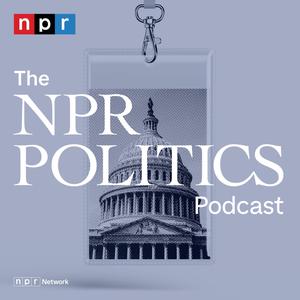 The NPR Politics Podcast
The NPR Politics Podcast
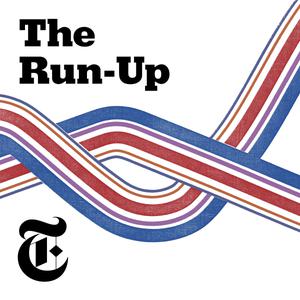 The Run-Up
The Run-Up
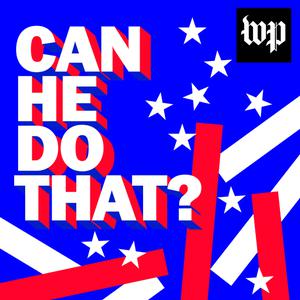 The Trump Trials: Sidebar
The Trump Trials: Sidebar
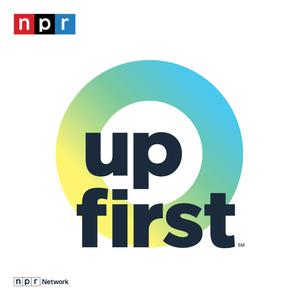 Up First
Up First
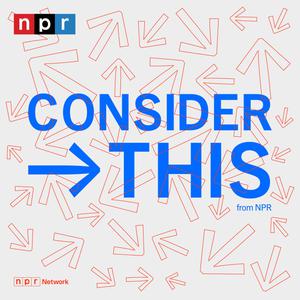 Consider This from NPR
Consider This from NPR